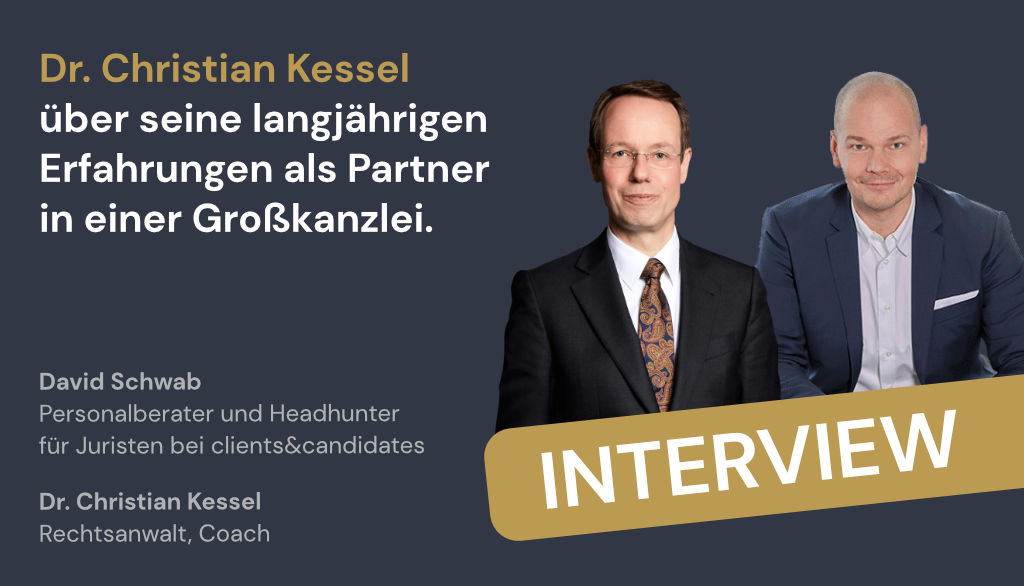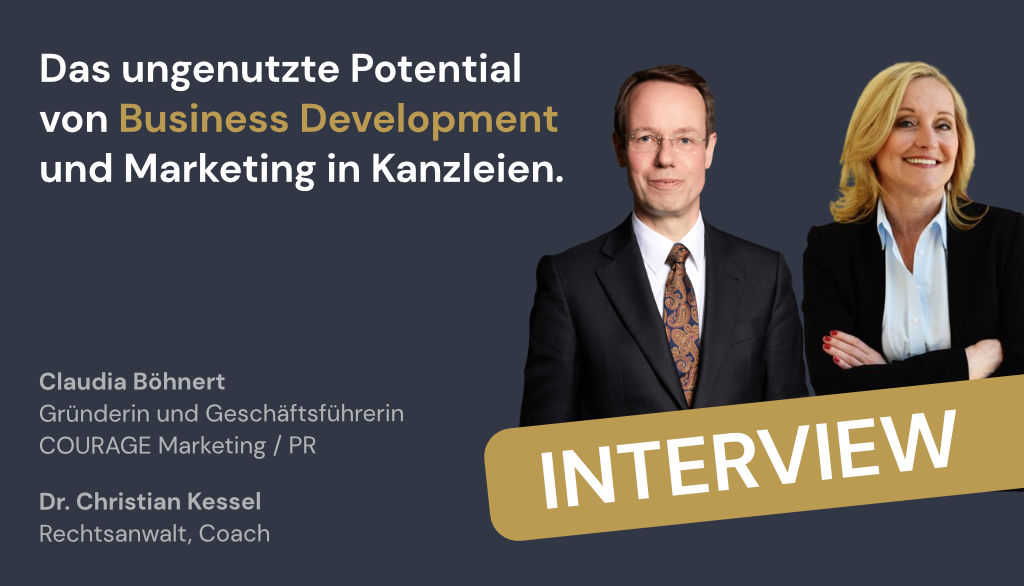Some basics for personal development to become a successful business developer
- What it means to be intentional in business development
- External and internal challenges, blockages, hindrances or obstacles for successful business development
- Dealing with and overcoming such challenges etc.
N.B.: This is a slightly amended and as regards both the meaning of being intentional and the identity issues extended version of a series of articles for a German digital legal periodical (Deutscher AnwaltSpiegel – www.deutscheranwaltspiegel.de) Therefore, it very much refers to business development in a law firm context. However, all principles set out and all examples mentioned apply directly or by analogy to all other professional services providers as well.
Against the background that, in my opinion, the gold standard for successfully generating new business (and ultimately in financial terms increasing cash flow and profit) is the acquisition of new clients on the market, we have dealt in a previous article Business Development Strategy with vision and strategy as prerequisites for successful business development and in a further article Implementing Business Development with some essentials for the practical implementation of any chosen strategy. In this concluding article, we will look at what it means to pursue business development “intentionally”, what challenges there are and how they can be overcome.
1. Being “intentional”
In order to make the vision for new business and its long-term growth a reality, it is necessary to pursue business development actively, consciously, purposefully and with the will not to be distracted (e.g. by client work, team issues or law firm matters). It also requires dedication to excellent quality in the activities undertaken. It is more than just having a focus. A focus is one-dimensional but intentionality is multi-dimensional.
Being intentional is also different from casual and opportunistic business development – the occasional, casual, irregular business development or the opportunistic exploitation of chances, possibilities or invitations (e.g. to speak at an event or to pitch for a panel appointment or a particular transaction) that are brought to one’s attention but are not actively sought, pursued or otherwise self-initiated.
In this sense, to be intentional means, to focus on the object or goals of the vision; conversely, it also means to be limited to them. Of all the possibilities for new business, being intentional requires the pursuit of your vision and the implementation of your strategy ( or key strategies) as well as your (every day, weekly or monthly) short-term key goals. A core value of your professional life is generating new business through efficient and effective business development activities; it becomes part of your business culture. And it extends to the team. In that sense, it has a different quality from just following some tips for the generation of sales, marketing processes, growth and financial success.
And it comprises the permanent active and creative search for (new) opportunities for business development, in particular, to sell oneself and the team. Furthermore, it requires to invest in the implementation of the vision and to also make sacrifices for this purpose (e.g. with regard to family, leisure time and friends).
2. Challenges and overcoming them
As in all areas of life and work, challenges, blockages or obstacles often have to be overcome in business development:
2.1 External challenges
On the one hand, there are external challenges, which are often essentially rooted in the law firm. A typical example may be any of the following:
- no release of budget for business development purposes,
- conflicts of interest,
- other partners do not or not reliably participate in your business development efforts,
- other partners oppose your strategy,
- the firm’s management is not convinced of your vision or strategy and does not support you, for instance in the hiring of specialists or experienced team members
2.2 Internal challenges
On the other hand, there are internal, i.e. personal challenges, blockages, hindrances or obstacles. They may be deeply rooted in one‘s identity or consist of limiting belief systems or negative mindsets. They may seriously affect the best vision, strategy and skills and may make success harder or prevent it altogether.
This topic is often the most challenging issue – no matter what seniority level you are at. Not everyone faces internal challenges, but it is also not uncommon that one does not find business development natural and easy.
Ultimately, any internal challenges can always be overcome, if you are prepared to face and deal with them whether you do so alone (quite difficult) or take advantage of the help of family or good friends, or seek external support, e.g. a coach.
This is a topic that is rarely if ever addressed in the usual “tips and tricks“ for successful business development. The insights I share in the following sections are all based on my own experiences and observations in teams, both regarding the formation of teams and their empowerment for business development. Therefore, the following insights are very important to me and hopefully resonate with some of those reading these sections.
I am thinking here of the following challenges, blockages or obstacles that I have often experienced in practice:
Lack of self-confidence
Most things you do for the first time come with a certain amount of uncertainty. Giving your first business development presentation in front of an audience of 200 people without a certain amount of “trembling and trepidation” is certainly unusual. But the lack of practice in business development in general or specifically in individual activities must not lead to (self-) blockage.
Self-confidence in business development comes from doing it (and not from fleeing into passivity).
Mental blocks
Negative mindsets or limiting life attitudes or “beliefs” about your own work or personal chances of success in life, in business or in business development ( or even in any 2 or all 3 of them) can prevent you from venturing into business development at all (for instance, as you feel much more comfortable as “back office”).
The fear of rejection which is associated with or results from not being awarded new work or losing a pitch can also cause such a mental block and prevent long term success as a business developer.
Dealing with such negative mindsets and limiting belief systems takes time and energy and requires perhaps even external help but is extremely worthwhile: because the simple truth is that these blockages hinder the true capabilities for successful business development only until they are dealt with and are overcome. Then your business development will have a different quality and effectiveness.
Identity issues
Going deeper, there is often a lack of an identity as a salesperson of one’s own skills, the team or the law firm. Those who join a renowned law firm with good exam grades from law school and/or their legal traineeship (and possibly an LL.M.) often believe that their success in their professional life is certain, and this belief is often supported by law firms during the recruitment phase. But it is not enough to be a brilliant lawyer with excellent exam grades and high intelligence, to have good manners and a friendly and engaging nature. You also have to understand and accept that you are a salesperson: just that you are not marketing and selling a product but a professional service ( even though increasingly standardised legal products and services are developed and marketing them comprises, even more, the tasks of a typical sales team).
Personal identity
The most fundamental and pressing need of human beings is the question of identity. Identity answers the question of existence and its purpose (why or for what purpose do I live?), of one’s own value (do I have value/am I valuable?) as well as of one’s own significance (am I relevant – and for whom?). All these questions and the answers to them make up a person’s personality and shape their personal/general identity. They result from the circumstances of growing up and the parental home, the experiences (especially also injuries) in childhood and youth, the influence of friends and relatives, and also first experiences in education and professional life. This general identity also plays a role in how easily one is able to build and sustain relationships – in our context for instance approaching targets, clients and customers and connecting with them for business development purposes.
Professional identity
In addition to this personal identity, there is the professional identity as an outstanding lawyer and adviser. What makes a good adviser? Not only providing clear and precise advice but also the courage to recommend a course of action in view of all the options and their pros and cons. Of course, ultimately always the client takes the decision. But what many of them need and appreciate is their lawyer and trusted adviser saying “I would do this and not the other” or “ I think the best strategy is option 3, I would discard options 1 and 2”. Do you have the courage and the business sense to make such recommendations? Ultimately, are you a strong decision-maker? After careful consideration do you cast aside all doubts, choose an option and recommend that personal preference to your client?
That is really what every business and its management needs. Those lawyers that have that quality of a trusted advisor are often ahead of the competition.
By the way, being a strong decision-maker is also an aspect of efficiency and is a good personal trait for successful business development.
Identity as a salesperson
The identity as a salesperson is obvious if one feels comfortable with promoting, advertising, marketing, selling ( whatever you want to call it) the expertise, experience, street credibility and willingness to serve and perform. Generating convincing arguments about why you and your team are the perfect matches for potential clients and advocating for them convincingly, even forcefully (in a good sense, without arrogance ) are part of it.
It also comprises being comfortable with turning existing personal relationships into business relationships or asking potential clients for appropriately high hourly rates, quoting huge realistic fees for transactions or litigation/arbitration cases and being prepared to defend them when they are questioned. All previous business development is in vain if I am not able to bring the deal home commercially as well. And if I find that unduly hard or challenging then my identity as a salesperson may not be fully developed.
Unfortunately, I have seen many promising lawyers fail to make the step into partnership because of a lack of this third component, the identity as a salesperson and thus the ability to develop a successful business case with a convincing promise of financial reward through efficient and effective business development.
Being sure of your identity
Those who are sure of all three types of their identity,
- are authentic (and do not pretend anything);
- have healthy self-confidence (without being arrogant);
- are credible as a trusted advisor personality;
- enjoy what they do – and that also includes business development.
Excuses
If, despite vision, strategy and with or without concrete weekly business development objectives, anyone simply does not pursue business development and always finds excuses not to do it – usually: “I have too much work” in several variations – then this can be an expression of one or more of the challenges described above. ()
Overcoming challenges, blockages, hindrances
Since I have recognized these internal challenges – especially the lack of identity as a salesperson – and have been able to address them, I have also made the experience and gained the deep conviction that every colleague has the potential to become not only a successful business developer but also a rainmaker.
You can learn a lot, you may have to work on yourself regarding some issues or challenges, and you may need support for some things –and such support is readily available.
But it is still rather unusual for lawyers to look for a mentor or sparring partner or to be coached. What is already common practice in the industry and sometimes even obligatory there, has not yet found its way into law firms. But even there the general trend towards and an openness for coaching is increasingly noticeable.
In times of increasing salary explosions for legal staff, increasing pressure on hourly rates and the trend towards alternative remuneration models, as well as a tendency to include performance-related bonus components in the salary structure (even for salaried lawyers below partner level) the pressure on the performance of the individual is growing. This is where coaching offers ideal support for lawyers/ attorneys in law firms.
3. Conclusion
3.1 Be reassured of success
Whoever takes the principles and recommendations in this article but also in the two previous articles to heart and activates his or her potential may, in my experience of over three decades, be sure of success in business development, right up to the chance of becoming a rainmaker.
3.2 Seek support, get a coach or mentor
And those who need help should make use of it. Counselling, coaching, mentoring, etc. no longer have negative connotations attached to them, not even in law firms. On the contrary, those who make use of it are wise and will be ahead. Solomon already said: “Plans fail for lack of advice, but with many advisors comes success”.






